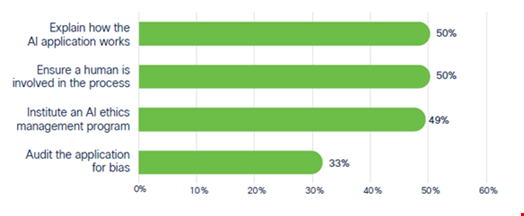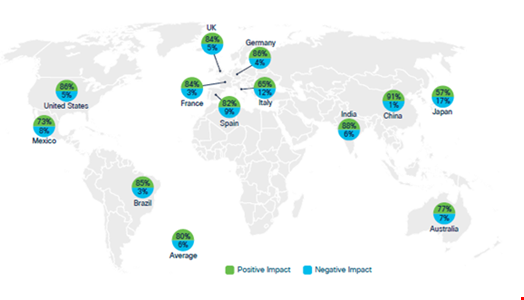More than 1 / 4 (27%) of organizations have banned the usage of generative AI amongst their workforce over privateness and knowledge safety dangers, not less than quickly, in line with the Cisco 2024 Data Privacy Benchmark Study.
Most organizations have additionally instituted controls on these instruments. Nearly two-thirds (63%) have established limitations on what knowledge could be entered and 61% have limits on which Gen AI instruments can be utilized by workers.
Despite these restrictions, many organizations admitted inputting delicate knowledge into generative AI purposes. This included details about inside processes (62%), worker names or info (45%), private details about the corporate (42%) and buyer names or info (38%).
Most respondents (92%) seen generative AI as a basically completely different expertise with novel challenges and issues requiring new strategies to handle knowledge and danger.
The greatest issues cited had been that these instruments may harm the group’s authorized and mental property rights (69%), the knowledge entered could possibly be shared publicly or with rivals (68%), and that the knowledge it returns to the person could possibly be unsuitable ( 68%).
Amid these points, 91% of safety and privateness professionals acknowledged that they should do extra to reassure clients about their knowledge use with AI.
However, not one of the actions listed within the research to construct belief with customers on this space exceeded 50% of respondents.

Dev Stahlkopf, Cisco Chief Legal Officer, commented: “Organizations see generative AI as a basically completely different expertise with novel challenges to contemplate.
“More than 90% of respondents imagine AI requires new strategies to handle knowledge and danger. This is the place considerate governance comes into play. Preserving buyer belief relies on it.”
Data Privacy Critical to Commercial Success
Nearly all (94%) safety and privateness professionals mentioned their clients wouldn’t purchase from their group if they didn’t defend knowledge correctly.
Encouragingly, 97% really feel they’ve a accountability to make use of knowledge ethically, and 95% argue the enterprise advantages of privateness funding are larger than the prices.
The rising connection between knowledge privateness and enterprise advantages has made this space a key boardroom challenge. Nearly all (98%) respondents reported a number of privateness metrics to the board, and over half reported three or extra.
The prime privateness metrics used had been audit outcomes (44%), knowledge breaches (43%), knowledge topic requests (31%) and incident response (29%).
The respondents had been overwhelmingly in favor of governments implementing knowledge privateness legal guidelines, with 80% believing privateness legal guidelines have had a constructive impression on their group, and simply 6% a detrimental impression.

Harvey Jang, Cisco Vice President and Chief Privacy Officer, famous that compliance with knowledge privateness legal guidelines offers “laborious proof” to customers that organizations are adequately defending their knowledge.
“These stats are the best we have seen in Cisco’s privateness analysis over time, proving as soon as extra that privateness has develop into inextricably tied to buyer belief and loyalty. This is much more true within the period of AI, the place investing in privateness higher positions organizations to leverage AI ethically and responsibly,” mentioned Jang.

